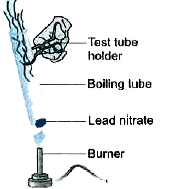(a) 'Devaluation and Deprecitation of currency is one and the same thing'. Do you agree? How do they affect the exports of a country?
(b) What is meant by 'official reserve transrtctions'? Discuss their importance in Balance of Payments.
(a) Depreciation and Devaluation both imply a fall in external value of a currency, however the term depreciation is used under the floating exchange rate system that is when the exchange rate system is determined by the combined market forces of demand and supply. A currency loses or gains value because of fluctuations in demand and supply. The term devaluation is used in a system of fixed exchange rates. In this system, the exchange value of a currency is decided by the government. Devaluation of currency is the deliberate action of the government. Depreciation and devaluation of a currency normally encourages exports from a country, as exports become cheaper for the foreign nationals and foreign currency can now buy more of domestic goods, i.e. the international competitiveness of the goods and services of such a nation gets better.
(b) The transactions carried on by monetary authorities of a country, which causes changes in official reserves are termed as official reserve transactions. Autonomous receipts and autonomous payments give rise to either deficit or surplus on balance of payments. The central bank may finance a deficit by:
(i) reducing reserves of foreign currency
(ii) by borrowing from the IMF or monetary authorities This will be shown as decrease in reserves. The central bank may use surplus to purchase foreign securities, foreign currency, gold etc. which may result in increase in reserves of the nation.
Topper's Solved these Questions
Similar Questions
Devaluation and Depreciation of currency is one and the same thing . Do you agree ? How do they affect the exports of a country ?
View SolutionWhat is meant by 'official reserve transactions'? Discuss their importance in Balance of Payments.
View SolutionIn case of foreign exchange, devaluation and depreciation of currency are one and the same thing. Do you agree with the give statement ?
View SolutionWhat is meant by 'official reserve transactions? Discuss their importance in Balance of Payments.
" " Or
What are official reserve transaction? Explain their importance in the balance of payments.
View SolutionObserve the diagram given alongside and answer the following questions:
(a) What do you observe when lead nitrate is heated?
(b) Mention the two gases evolved during heating.
(c ) Write the balanced chemical equation for it.
(d) What is the type of chemical reaction called?
(e) Give one more example of this type of reaction.

View SolutionDecentralisation is an optional policy. Do you agree? Explain why an organisation would choose to be decentralised?
Or
What is meant by 'decentralisation of authority'? Explain any four points, why decentralisation of authority is important?
Or
What is meant by decentralisation? State any four points, why dencentralisation is important?
Or
With help of any four points, explain the importance of decentralisation in an organisation.
View SolutionAccording to recent to recent media reports:
USA has accused China of currency devaluation to promote in exports'. In the light of the given media report comment., how exports can be promoted through the Currency devaluation?
(b) What is meant by Curreny Account Deficit(CAD) and Current Account Surplus (CAS)? State theri significance
View SolutionHere are some pieces of information about four countries. Based on this information, how would you classify each of these countries? Write 'democratic', 'undemocratic' or 'not sure' against each of these.
(a) Country A: People who do not accept the country's official religion do not have a right to vote.
(b) Country B: The same party has been winning elections for the last twenty years.
(c) Country C: Ruling party has lost in the last three elections.
(d) Country D: There is no independent election commission.
View Solution(a) Draw magnetic field lines of a bar magnet. "Two magnetic field lines never intersect each other." Why ?
(b) An electric oven of 1.5 kW is operated in a dometic circuit (220V) that has a current rating of 5A. What result do you expect in this case ? Explain .
or
Which is meant by resistance of a conductor ? Name and define its SI units. List the factors on which the resistance of a conductor depends. How is the resistance of a wire affected if −
(i) its length is doubled , (ii) its radius is doubled ?
View Solution(a) Draw magnetic field lines of a bar magnet. "Two magnetic field lines never intersect each other." Why ?
(b) An electric oven of 1.5 kW is operated in a dometic circuit (220V) that has a current rating of 5A. What result do you expect in this case ? Explain .
or
Which is meant by resistance of a conductor ? Name and define its SI units. List the factors on which the resistance of a conductor depends. How is the resistance of a wire affected if −
(i) its length is doubled , (ii) its radius is doubled ?
View Solution
